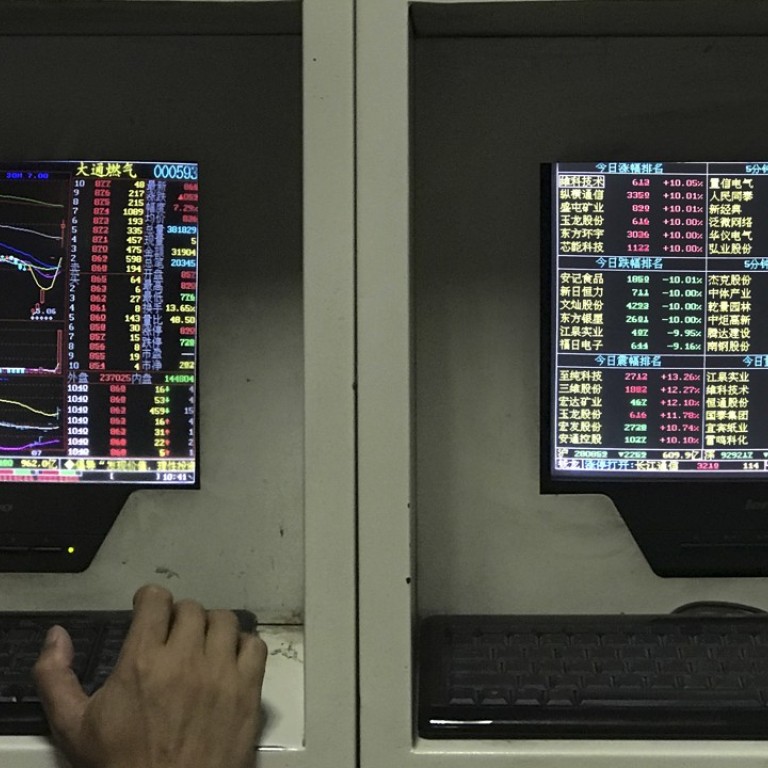
In a nation famous for playing the long game, this Shanghai fund manager is taking the long view
Add holdings gradually and buy aggressively when risks are fully exposed, says money manager at HSBC Jintrust Fund Management
Shi Xingtao, a top performing Shanghai-based money manager at HSBC Jintrust Fund Management, whose fund has outperformed 97 per cent of its rivals over the past three years, says he is in no hurry to add to its holdings of Chinese stocks, even though equities are cheaper now than they were after a crash three years ago that erased US$5 trillion in market value.
Shi said he had no immediate plans to boost his allocations and forecast that China stocks will move in a consolidating pattern in the second half, after delivering the worst returns among the world’s major markets so far this year. Earnings growth estimates may be lowered, as policymakers show no intention of significantly easing a campaign aimed at cutting corporate debt and reining in shadow banking, and as a trade war with the United States continues to simmer, he said.
There’s a pretty low chance that the market will stage a V-shaped reversal
“There’s a pretty low chance that the market will stage a V-shaped reversal,” Shi said in an emailed interview. “Both external and internal pressure are building up. Our suggestion is to add holdings gradually now and buy aggressively when risk events are fully exposed.”
Shi’s HSBC Jintrust Dual Core Mixed Fund has returned 12 per cent over the past three years, according to data compiled by Bloomberg. HSBC Jintrust Fund Management is a unit owned by the UK lender, with 26.6 billion yuan (US$3.4 billion) in assets under management.
China’s benchmark Shanghai Composite Index has dropped by 16 per cent this year, driving down its price-to-earnings ratio to a low of 13.2 times this month. Among the major markets in Asia, only stocks in South Korea, Hong Kong and Singapore are more expensive than Chinese equities.
Shi’s call stands in contrast with China’s state-controlled media and the Shanghai Stock Exchange, which recently ran articles saying Chinese stocks were a bargain and the declines were irrational. Listed companies themselves were taking action to stem losses in share prices. They have unveiled plans to spend a record 36 billion yuan buying back their own shares this year, according to Guosen Securities.
The UBS Group even forecast Chinese stocks will rise by more than 10 per cent in the second half, as pessimism over the trade war with the US and tighter liquidity have already been priced in.
Shanghai exchange says beaten-down stocks are worth buying after entering bear market
Shi said he was avoiding liquor distillers, appliance makers and other consumer stocks, investors’ favourites that are seen as most shielded from shrinking demand overseas. The market is overlooking the late-cycle characteristic of the sector, he said, referring to the fact that profitability of consumer stocks will also be hurt when an uptick in economic growth enters its late stage.
Instead, he was looking at investment opportunities involving stocks in property, steelmakers and construction material producers. While these stocks have very attractive return-on-equity ratios, their share prices were battered close to book value and already reflected risks such as deleveraging and the crackdown on home prices, Shi said.
His view on Chinese equities was echoed by KGI Securities, which said cheaper stocks may set up a valuation trap for investors.
“Unless we see improvement in fundamentals, it’s not going to work no matter how low the valuation is,” said Chen Hao, a strategist at KGI Securities in Shanghai.

